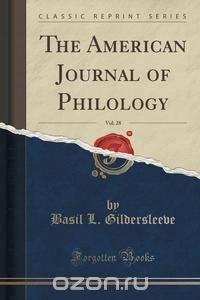Excerpt from The American Journal of Philology, Vol. 28
In this age of the "so-called" in Latin syntax, even so universal a category as the unreal conditional sentence has been questioned from time to time, and lately by Methner, who tries to show that there is no such thing as the present unreal. The weakness of this thesis has already been pointed out by Blase, whose argument might have been rendered even more cogent by carrying the question back to Plautus, taking such an example as the following:
St. 592-93:
EP. Edepol te vocem lubenter, si superfiat locus.
GE. Quin tum stans obstrusero aliquid strenue.
In this passage the reply shows beyond the shadow of a doubt that the conditional sentence was understood not as a future ("if there should prove to be a place to spare"), but as a present unreal ("if there were a place to spare"). The former interpretation would hold out hope of a dinner, the other cuts it off definitely and calls forth Gelasimus" eager suggestion. Such a passage shows conclusively that the present unreal was an established category in the Roman mind at least as early as Plautus.
About the Publisher
Forgotten Books publishes hundreds of thousands of rare and classic books. Find more at www.forgottenbooks.com
This book is a reproduction of an important historical work. Forgotten Books uses state-of-the-art technology to digitally reconstruct the work, preserving the original format whilst repairing imperfections present in the aged copy. In rare cases, an imperfection in the original, such as a blemish or missing page, may be replicated in our edition. We do, however, repair the vast majority of imperfections successfully; any imperfections that remain are intentionally left to preserve the state of such historical works. Это и многое другое вы найдете в книге The American Journal of Philology, Vol. 28 (Classic Reprint) (Basil L. Gildersleeve)















